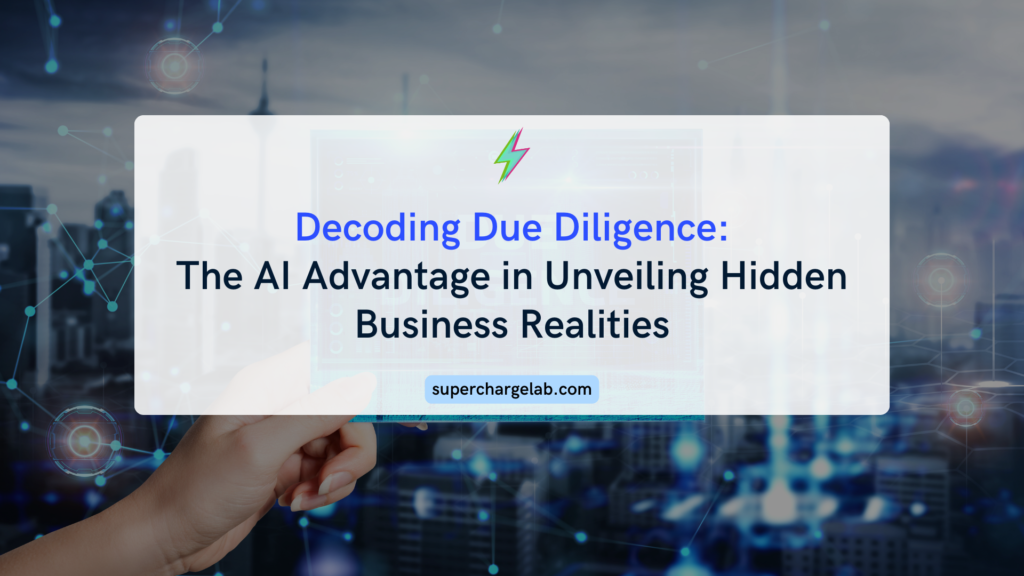
Introduction:
In the complex landscape of due diligence, the integration of artificial intelligence (AI) emerges as a transformative force in deciphering concealed business realities. As we delve into the dynamics of due diligence with an AI lens, a new frontier unfolds, promising not only enhanced efficiency but a profound understanding of hidden intricacies shaping business landscapes.
Unveiling the Power of AI in Due Diligence:
The advent of AI technologies revolutionizes the due diligence process, bringing forth unparalleled capabilities. From data analysis to risk assessment, AI-powered tools excel in sifting through vast datasets to uncover critical insights that might elude traditional methods. This article explores the multifaceted advantages AI brings to due diligence, paving the way for a more informed and strategic decision-making process.
Navigating Complex Business Realities:
In a rapidly evolving business environment, complexity is inevitable. AI-driven due diligence equips decision-makers with the tools to navigate intricate business landscapes. Whether it’s evaluating market trends, assessing financial health, or uncovering potential risks, AI enhances the precision and speed of due diligence, ensuring a comprehensive understanding of the nuanced realities businesses operate within.
Risk Mitigation and Strategic Decision-Making:
One of the paramount objectives of due diligence is risk mitigation. The article delves into how AI not only identifies risks but also aids in the formulation of proactive strategies to mitigate them. By leveraging predictive analytics and machine learning algorithms, businesses can make data-driven decisions that go beyond reacting to challenges, ultimately fostering resilience and sustainability.
Enhancing Efficiency and Accuracy:
Traditional due diligence processes can be time-consuming and prone to human error. The incorporation of AI streamlines these processes, significantly reducing the time required for comprehensive assessments. Moreover, the article explores how AI’s inherent ability to process information at scale contributes to heightened accuracy, enabling due diligence practitioners to make well-informed judgments with confidence.
Ethical Considerations in AI-Powered Due Diligence:
While AI brings immense advantages, ethical considerations are paramount. This article addresses the ethical implications of using AI in due diligence, emphasizing the importance of responsible AI practices. It explores how businesses can ensure fairness, transparency, and accountability in their use of AI technologies, aligning with societal values and ethical standards.
Collaborative Learning and Adaptation:
In the ever-evolving landscape of due diligence, a commitment to collaborative learning is indispensable. This article encourages a culture of knowledge exchange within the due diligence community. By sharing insights and best practices, due diligence professionals can collectively adapt to the evolving capabilities of AI, ensuring a dynamic and responsive industry.
Conclusion:
As businesses embark on due diligence endeavors in the era of AI, decoding hidden realities becomes not just a process but a strategic advantage. This article illuminates the path forward, showcasing how the fusion of AI and due diligence can unravel hidden business truths, empower decision-makers, and redefine the standards for thorough and insightful assessments.
Learn more about cutting-edge due diligence practices and AI applications at www.calendly.com/annecheng.